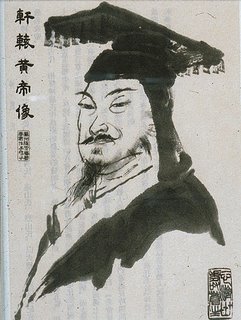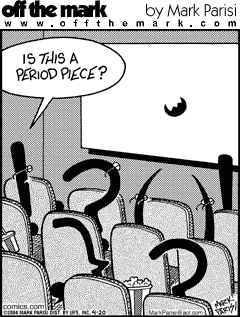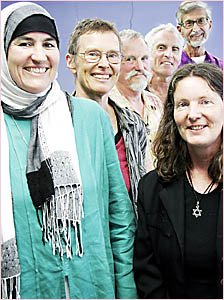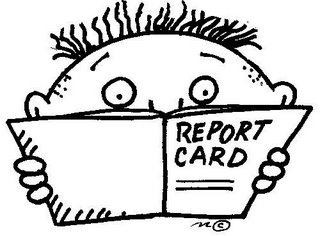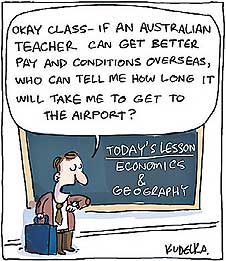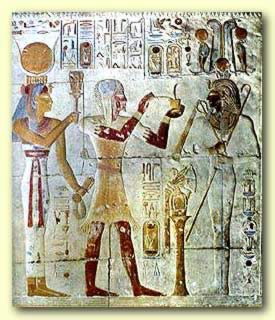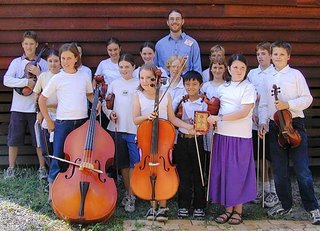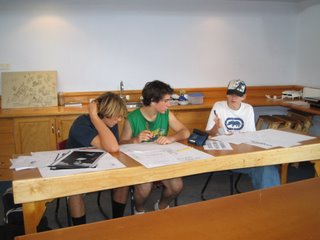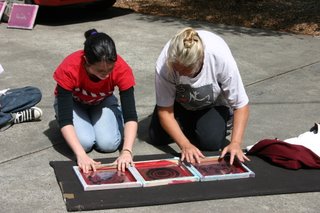THE IMPERIAL EMPEROR AS DESPOT
Despotism is a form of governance by a single authority, either an individual or tightly knit group, which rules with absolute authority and power. On its classical form, despotism is a state where one single person wields all the political power, and everyone else is considered as slaves. This form of despotism was the first known form of statehood and civilization; the Egyptian Pharoahs were a hallmark of a classical despot.
The term now implies tyrannical rule. Even though the word has modern pejorative meaning, it was once a legitimate title of office in theByzantine Emperor Just as the word "Byzantine" is often used in a pejorative way (for specific reasons by certain Enlightenment authors wishing to express disapproval of that period in history), the word Despot was equally turned around for negative meaning. In fact, a Despot was an Imperial title, first used under Manuel I Komnenos(1143–1180) who created it to his appointed heir Alexius-Bela. According to Gyula Moravcsik this title was a simple translation of Béla's Hungarian title 'úr', but other historians believe it comes from the old Roman title 'dominus'.
So what does all that have to do with education and leadership?
I was having a discussion on the subject of health and education with a friend, who is a practicing acupuncturist. We were both acknowledging how much education has changed, and how radically different thinking processes are now, compared to 500 years ago. To describe this change, we used the term 'evolution of consciousness', agreeing that the youth of today have entirely different thought processes, with great potential for subtlety and sophistication . My friend then lamented the way certain systems have remained static, and unable to respond to change, especially in regard to his field of expertise.
He went on to describe how the the heart was still considered the Emperor of organs, a belief that can be traced back over 5000 years to ancient Chinese medical practice. He then described a new model, outlining a dynamic way to review this ancient wisdom. As the once Emperor, now faded from absolute power, he saw the heart, not as a distant tyrannical ruler inflicting slavery upon all the other organs, but rather a benevolent, wise watcher, always open to communication, whilst remaining strong and effective. This particular metaphor caught my attention, especially in relation to some of Margaret Wheatley's work on leadership and the future. Her comments opposing mechanistic and robotic systems also resounded in our conversation in relation to erroneous belief that the heart is simply a pump.
In 1932, Bremer of Harvard filmed the blood in the very early embryo circulating in self-propelled mode in spiralling streams before the heart was functioning.The heart, an organ weighing about three hundred grams, is supposed to `pump' some eight thousand litres of blood per day at rest and much more during activity, without fatigue. In terms of mechanical work this represents the lifting of approximately 100 pounds one mile high! In terms of capillary flow, the heart is performing an even more prodigious task of `forcing' the blood with a viscosity five times greater than that of water through millions of capillaries with diameters often smaller than the red blood cells themselves! Clearly, such claims go beyond reason and imagination. Due to the complexity of the variables involved, it has been impossible to calculate the true peripheral resistance even of a single organ, let alone of the entire peripheral circulation. Also, the concept of a centralized pressure source (the heart) generating excessive pressure at its source, so that sufficient pressure remains at the remote capillaries, is not an elegant one.
I really thought the above analogy drew humorous conclusions to a tyrannical dictator who was defeated from the onset by the very nature of the human condition to organize itself into a functional system. The inevitability of demise was palpable. I felt inspired by this quote from Margaret Wheatley:
"Western cultural views of how best to organize and lead (now the methods most used in the world) are contrary to what life teaches. Leaders use control and imposition rather than participative, self-organizing processes. They react to uncertainty and chaos by tightening already feeble controls, rather than engaging people's best capacities to learn and adapt. In doing so, they only create more chaos. Leaders incite primitive emotions of fear, scarcity, and self-interest to get people to do their work, rather than the more noble human traits of cooperation, caring, and generosity. This has led to this difficult time, when nothing seems to work as we want it to, when too many of us feel frustrated, disengaged, and anxious."
Margaret J. Wheatley is a writer and management consultant who studies the behaviours found in organizations. Her approach includes systems thinking, theories of change, chaos theory, leadership and the learning organization: particularly its capacity to self organize. She describes her work as opposing "highly controlled mechanistic systems that only create robotic behaviours."
Maybe it is time to review Despotism in all shapes and forms in favour of living dynamism and effective communication.
References:
Despot-http://en.wikipedia.org/wiki/Despot
Margaret Wheatley-http://en.wikipedia.org/wiki/Margaret_Wheatley
The heart is not a pump- http://www.rsarchive.org/RelArtic/Marinelli/
